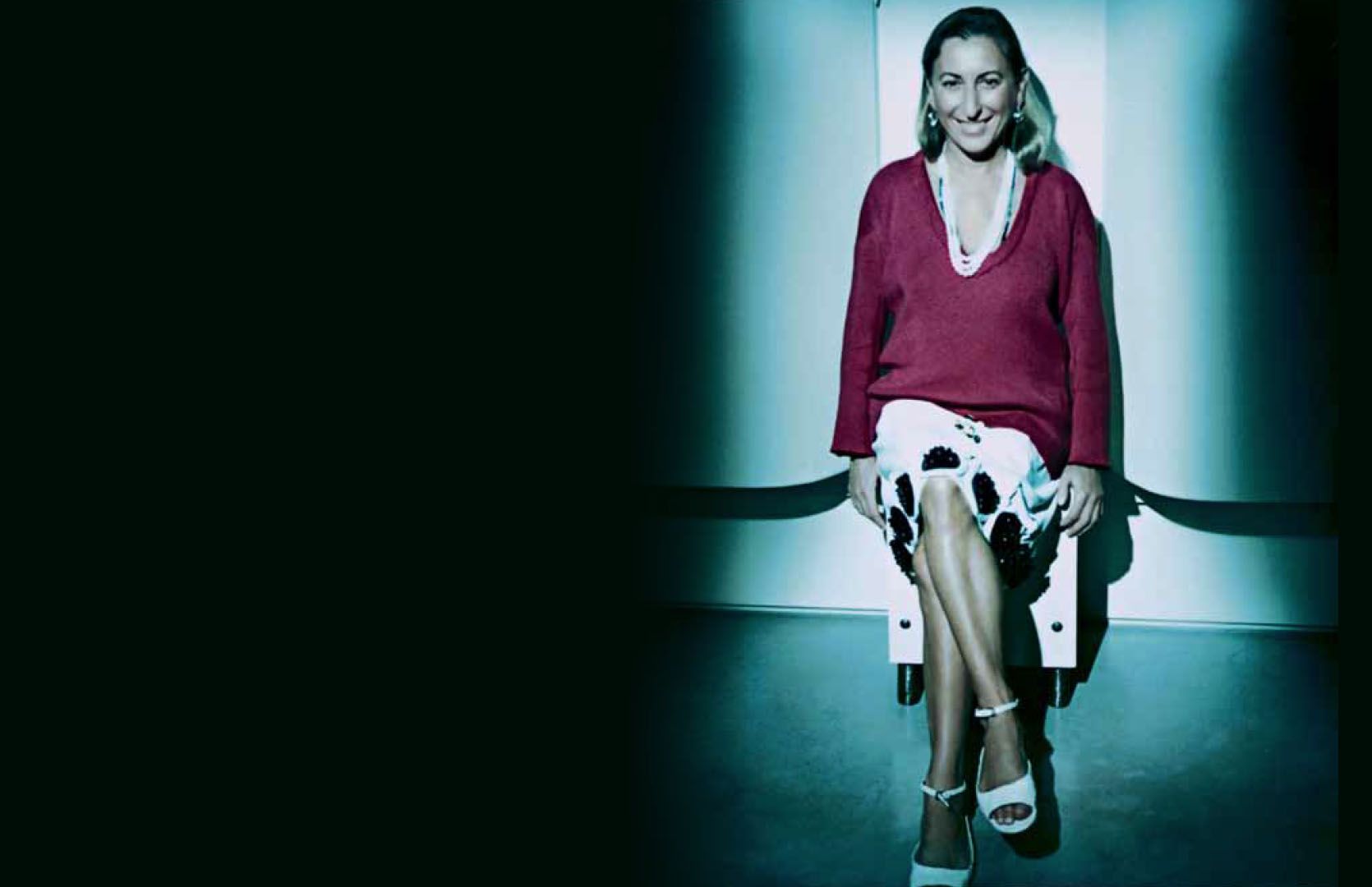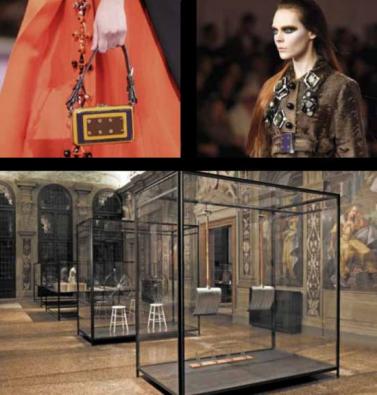The Anti-fashionista

Miuccia Prada has succeeded by ignoring most of fashion's rules
Words by Sandra Lane in The Lifestyle · Mar 7th, 2014
The models stream along the catwalk; the lights sweep the stage; the music reaches a crescendo... cue the designer's triumphant 'victory walk'. But Miuccia Prada is not there - the showbiz hoopla is simply not her thing. one of the world's most influential designers, Prada - with her husband, Patrizio Bertelli - today presides over a global fashion business with an annual turnover of two billion euros. This despite no formal design training and a well-documented dislike of parties, personal publicity and all the usual components of fashion success. In 2004 Prada told Vogue, "I love clothes. Maybe I can say I don't love fashion, but I love clothes completely."
Year after year she has defied prevailing tastes with clothes that project a womanly vision of femininity, communicating both intelligence and a sense of fun. And tastes catch up with her vision - just as she has moved on to the next thing, veering from olive drab to lace to vintage brooches and back again. It was Prada who turned utilitarian black nylon into a high-status, high-fashion fabric with the 1985 backpack that became an instant cult hit - and followed it, in her début ready-to-wear collection in 1989, with short, high-buttoned nylon coats that to this day define edgy urban chic.

The product of a bourgeois upbringing (her grandfather, Mario, founded the family firm in 1913, making luggage for the aristocracy), Prada gained a Phd in Political Science, then studied mime. Participating in the student protests of the late 1960s (wearing Yves Saint Laurent) she joined the Communist party and was an avowed feminist.
Prada and Bertelli make a formidable couple - and not just in business. Avid collectors of contemporary art, in the mid-1990s they established Fondazione Prada devoted to "the most profound and thought-provoking art projects of our time". It now encompasses film, publishing, design, architecture, philosophy and urban culture, as well as art. In 2010 the Foundation commissioned the architect Rem Koolhaas to design a permanent home south of Milan. The same year, reflecting the international art world's respect for her, Prada was asked to present the turner Prize. Last year the Foundation inaugurated a new exhibition space in Venice, Ca' Corner della Regina, a magnificent palazzo on the Grand Canal.
Prada has always kept her interest in art separate from her designing, although she recently hinted that this will change. And yet, she has said: "Art is something that stands by itself, and fashion is something you sell." As always, the only predictable thing about Miuccia Prada is that she defies prediction.